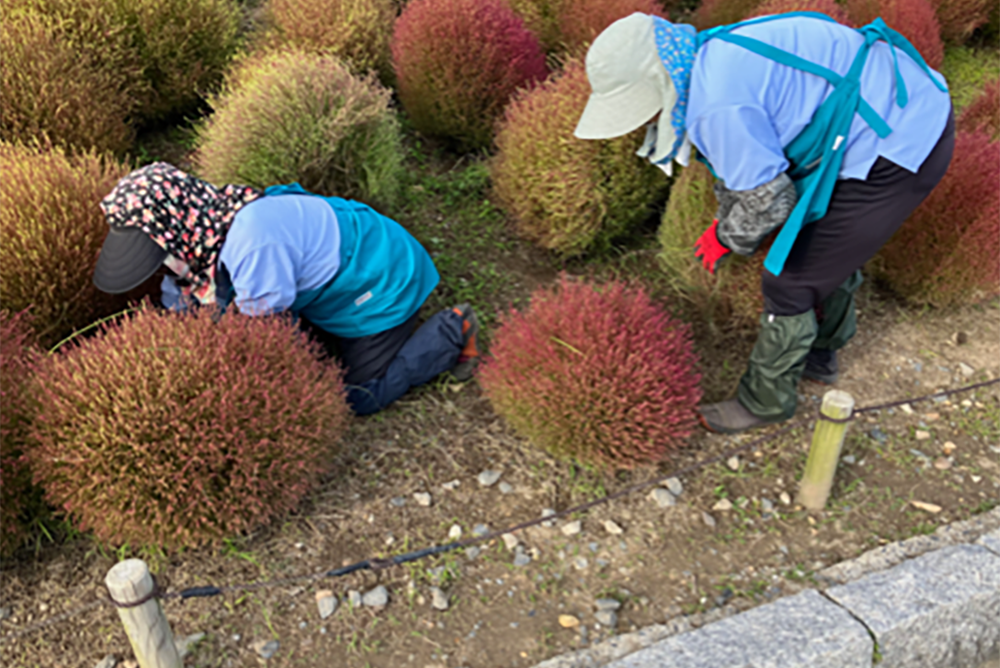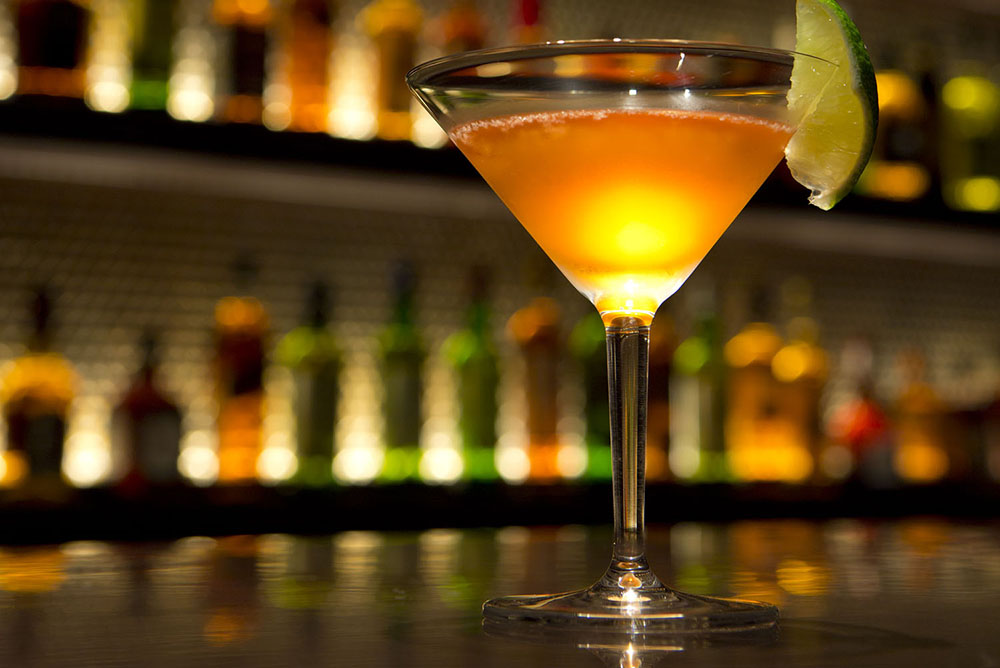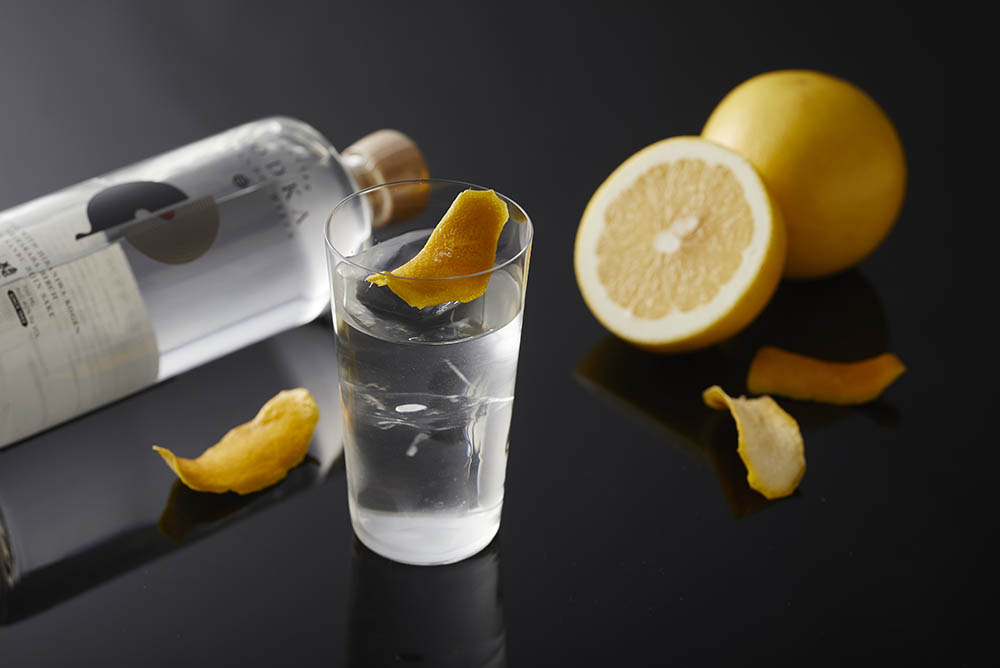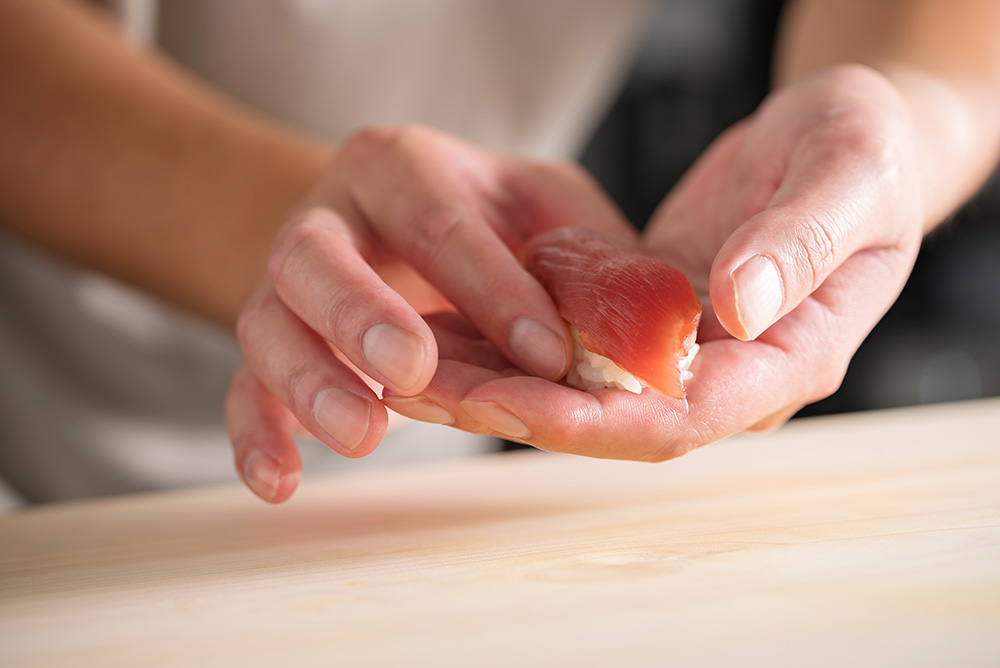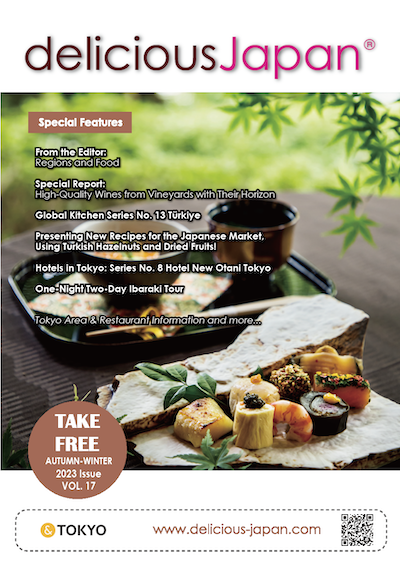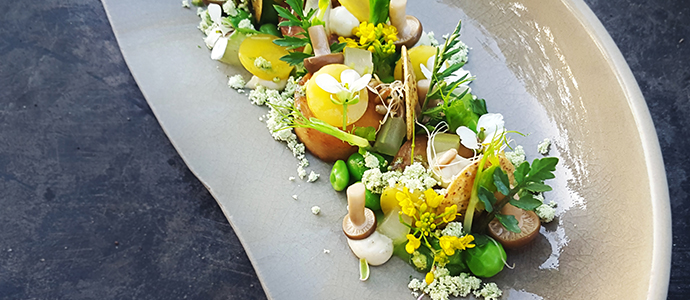
The Vegetarian Chef in The Spotlight
World Vegan Project Vol. 1, an event for enjoying the world’s finest vegan course meals, took place at Horizon Tokyo in February 2020. Gijs Kemmeren came specially from the Netherlands to Japan as guest chef. He found some time in his busy schedule to grant us an interview.

GIJS KEMMEREN
Gijs Kemmeren is recognized around the world for his magnifi cent win in The Vegetarian Chance 2017, an annual event in Italy.
Please tell us about your background.
I started cooking when I was 13 or 14 years of age, and I worked in many different restaurants over the years. The last 4 or 5 years I worked as head chef of vegetarian restaurant Herberg de Kop Van Het Land in the Netherlands. There I developed my way of vegetarian cuisine. Before that, I didn’t work in a vegetarian restaurant, but in many different types and levels of restaurants.
In 2019 I started GK Foods, and I give lectures about vegetarian and plant-based cooking for chefs, students, and different types of businesses. Also, I produce vegetarian products for other restaurants. One of those products is my dry-aged beetroot. That I will bring to the event as one of my dishes. I still hope to open my own restaurant one day, and it will be a vegetable restaurant for sure.
Which recipe won the Vegetarian Chance?
I cooked two dishes. One was a split pea dish that has its origin in a classic Dutch soup, and the second dish was based on white asparagus. This is a product that Dutch people are very proud of. The judge really liked the flavour and were impressed that I had chosen to serve two dishes that were on the menu of the restaurant. I didn’t do anything extra for the competition, my goal was to show the judges how we are cooking in the Netherlands, sourcing many things locally and thinking about what to do with all the waste.
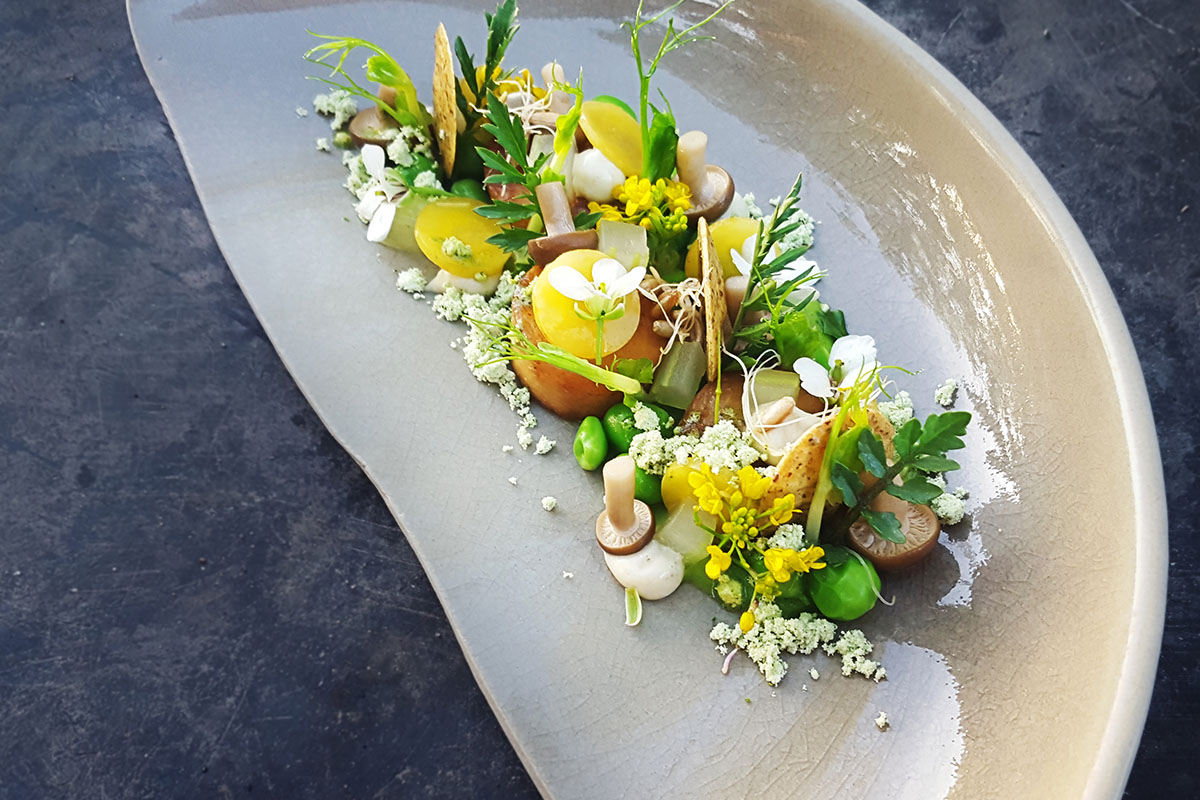
This is a traditional Dutch soup which has been eaten in the winter since the early 17th century. Dry split peas are at the foundation of this soup. We use the same seasonal ingredients while updating it to the 21st century and adding our philosophy to the dish.
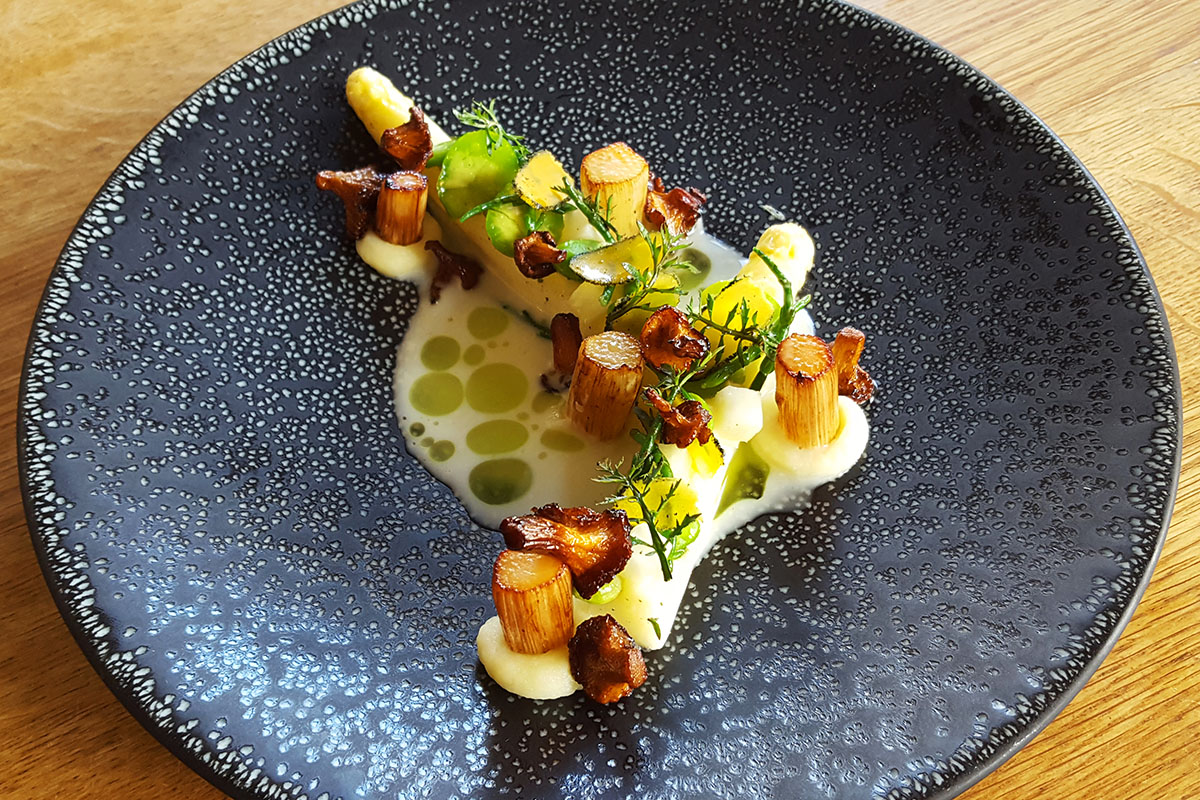
Next to herring, mussels and strawberries, asparagus, traditionally served with potato, boiled egg and cooked ham, is one of the most precious and anticipated seasonal product for the Dutch. In this dish you will find the classic flavour of asparagus as eaten in our country.
What is the important point when developing a new recipe?
The important thing for me is to really look at a product, where it is from, and the types of techniques that the product enjoy when I perform it. Also, to look what I can do with the waste that’s le« over. Of course, at the end of it all, flavour will always be the most important thing in a dish.
What is the most important thing when cooking?
Creating a delicious dish is one thing, but having discipline and structure in a kitchen is very important in creating the dish perfectly every time.
Also creativity and knowing why a recipe works or not. I spend a lot of time figuring out the best ways to prepare something, and a large part of this is trying to understand how things work. For example, why does a mayonnaise stabilize, and what happens when I freeze, salt, and dehydrate it? I think things like this help you discover new recipes, flavours, and cooking techniques.
When you look at Japanese foodstuffs, condiments/seasonings, or maybe cooking techniques and food culture, is there any area you are particularly interested in, from your perspective as a chef?
Japanese food culture is of great influence to the world, in the Netherlands as well. Many chefs travel to Japan to experience your cuisine and many products and flavours that we don’t have in the Netherlands. For me as well, although I try to focus myself on the Dutch cuisine and Dutch products, the influence of the Japanese food culture is everywhere. The fermentation techniques are especially interesting, and also the Japanese discipline is a great inspiration to me. I’m really looking forward seeing as much as possible during my stay in Japan.
Did you have a chance to experience Japanese food and other technical exchanges with other chefs during your visit to Japan?
Yes, I will be in a Japanese kitchen for a couple of days, and I’m looking forward to seeing the way a kitchen operates in Japan. I will try to eat and taste as much as possible during my stay.
What does "hospitality" mean to you?
Service is very important - giving the guest the feeling they are very welcome in your restaurant. Going to a restaurant needs to be a total experience in food and in hospitality.
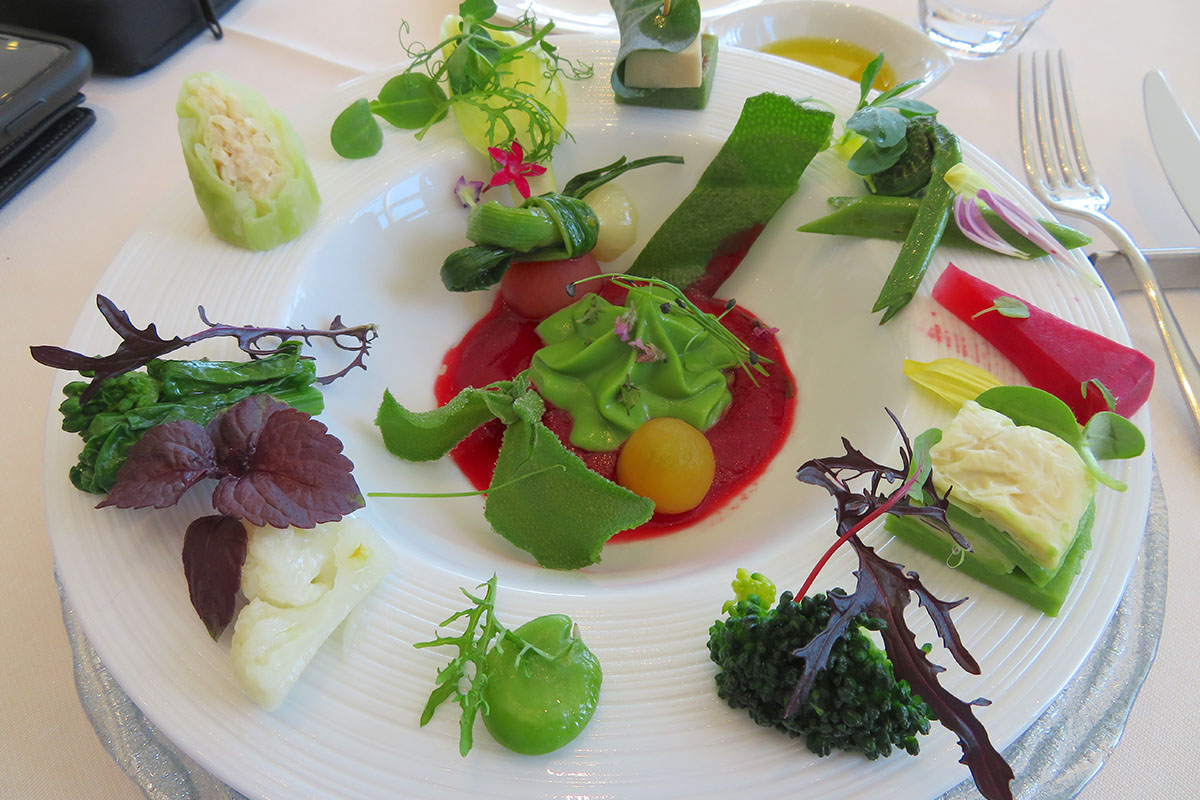
An appetizer, beautifully sprinkled with micro herbs. The dish vividly presents the individual colors, shapes, and scents of the tender young herbs.
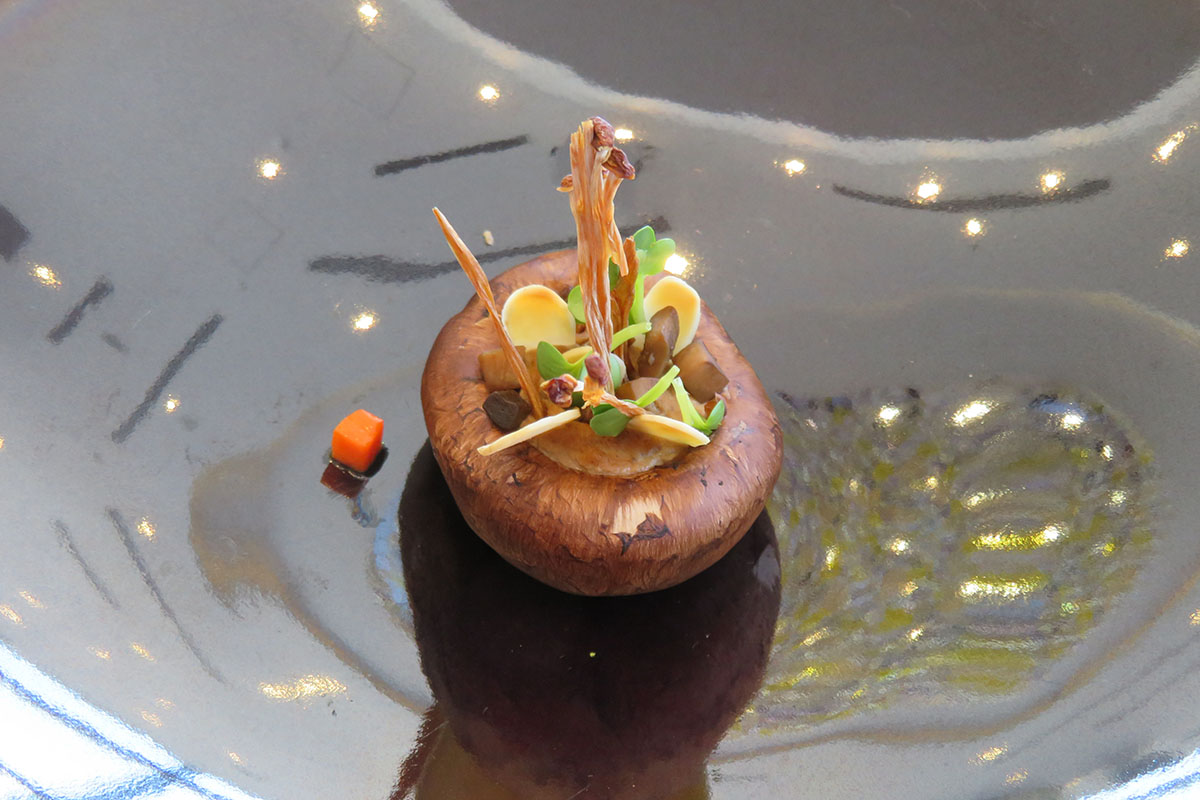
Mushroom steak served with natural enoki mushrooms and almond cream.
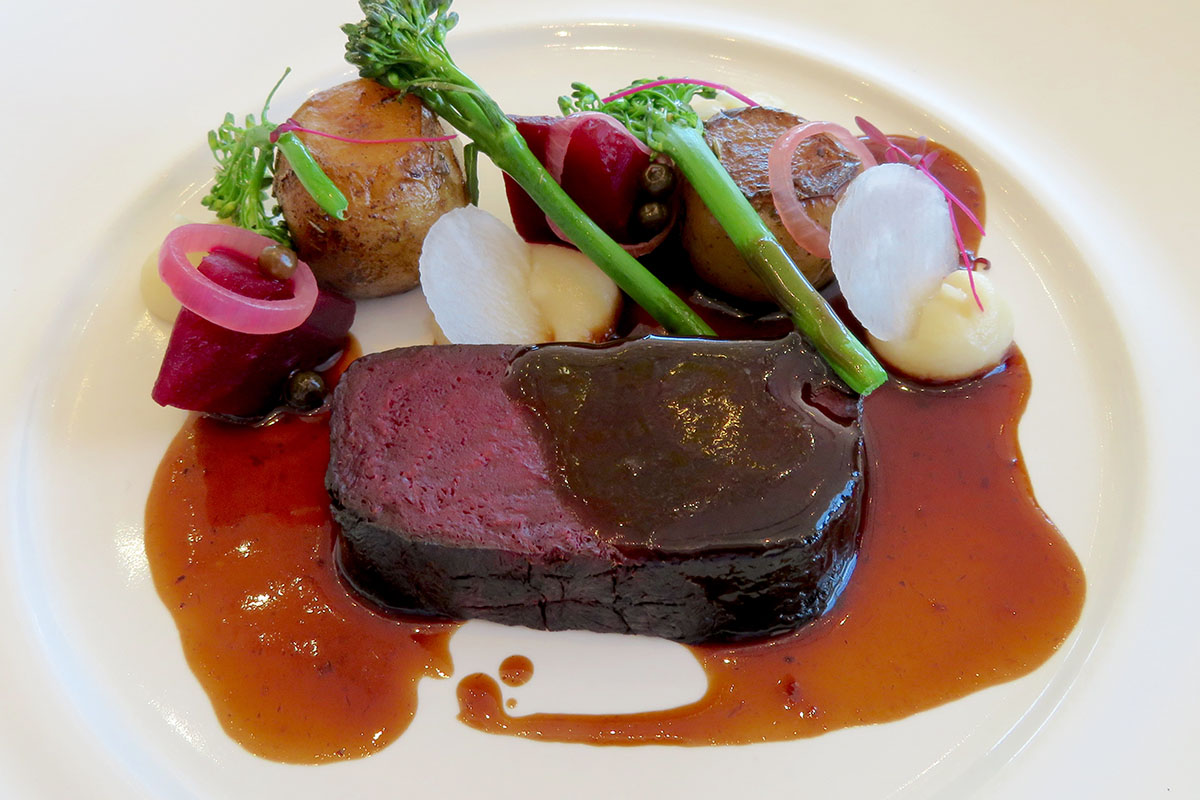
A dry-aged beetroot steak.
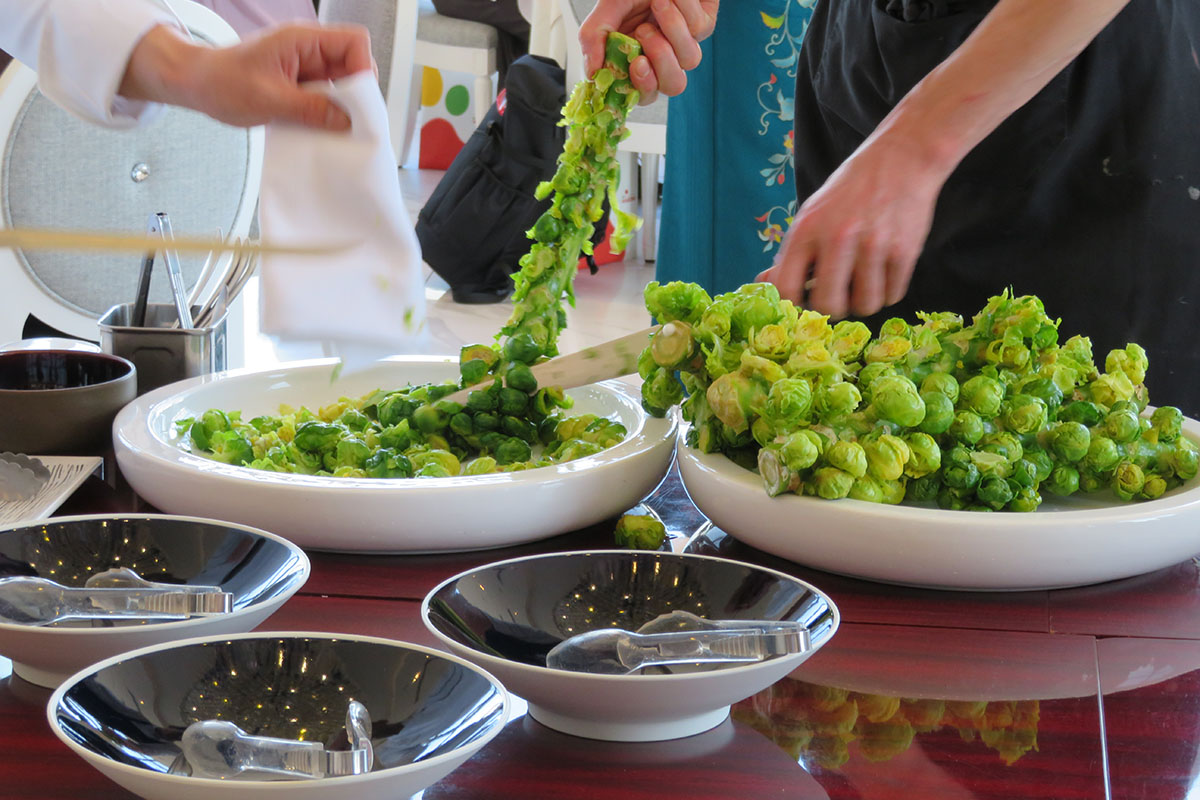
The chef cuts huge clumps of Brussels sprouts like Churrasco, and serves them on the spot.

